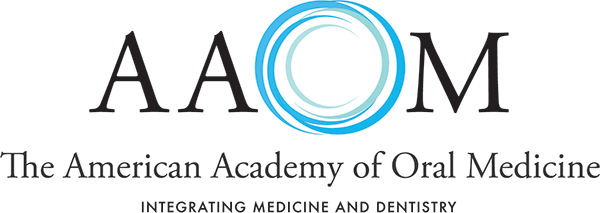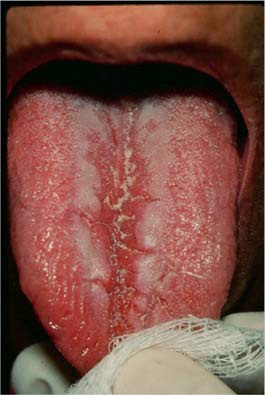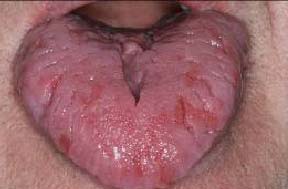The term fissured tongue describes the finding of multiple small furrows or grooves on the dorsal (top) surface of the tongue.
QUESTIONS AND ANSWERS ABOUT GEOGRAPHIC TONGUE
Q: What causes fissured tongue?
A: The cause of fissured tongue is not known. Some authorities believe that fissured tongue is just a variation of normal. Fissured tongue and geographic tongue (Please see PATIENT INFORMATION SHEET: Geographic Tongue) can occur together and some believe that these two conditions are related.
Q: How is the diagnosis of fissured tongue made?
A: The condition is usually observed as an incidental finding on a routine dental examination and the diagnosis made by the characteristic clinical appearance of the tongue. A biopsy is usually not indicated for diagnosis of fissured tongue.
Q: Is there treatment?
A: Fissured tongue is a harmless condition usually with no associated symptoms. No treatment is necessary except to encourage good oral hygiene including brushing the top surface of the tongue to remove any food debris from the fissures. Cleansing of the tongue helps prevent irritation and possible bad breath that may occur from food getting trapped in the grooves. In addition to regular toothbrushes, numerous specific devices to clean the tongue are available at most major pharmacies. Dentists can assist patients by making recommendations concerning devices for tongue cleansing.
Q: Who can get fissured tongue?
A: Anyone can potentially develop fissured tongue, particularly later in life. Although the cause is unknown, it is not a contagious disease and people cannot pass it to anyone else.
Prepared by L. Radfar and the AAOM Web Writing Group
Reviewed 13 May 2015
Japanese Translation - 日本語訳
Spanish Translation - Traducción Español
The information contained in this monograph is for educational purposes only. This information is not a substitute for professional medical advice, diagnosis, or treatment. If you have or suspect you may have a health concern, consult your professional health care provider. Reliance on any information provided in this monograph is solely at your own risk.


 These fissures can be shallow or deep, single or multiple. Often there is a prominent fissure in the center of the tongue. Typically most fissures are found on the middle one-third of the tongue. Fissured tongue occurs in about 5% in the U.S. population. As people age, this condition is found more commonly and the severity also increases. Men are affected slightly more commonly than women. The patient to the right has a combination of both fissured and geographic tongue. The patient to the left has a fissured tongue with white coating from food intake.
These fissures can be shallow or deep, single or multiple. Often there is a prominent fissure in the center of the tongue. Typically most fissures are found on the middle one-third of the tongue. Fissured tongue occurs in about 5% in the U.S. population. As people age, this condition is found more commonly and the severity also increases. Men are affected slightly more commonly than women. The patient to the right has a combination of both fissured and geographic tongue. The patient to the left has a fissured tongue with white coating from food intake.